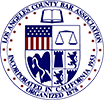What are the legal requirements?
H-1B status is limited to foreign workers who work in "specialty occupations" and to fashion models with "distinguished merit and ability." The USCIS rule regarding a specialty occupation highlights these elements:
- theoretical and practical application of a body of highly specialized knowledge
- minimum entry-level requirement of a bachelor's or higher degree in a specific occupational specialty
- some fields with the requisite body of highly specialized knowledge include architecture, engineering, mathematics, physical sciences, social sciences, medicine and health, education, business specialties, accounting, law, theology, and the arts
As a general rule of thumb, the following positions are deemed to be "specialty occupations" and qualify for H-1B status (although careful consultation with Attorney Michael S. Cho is needed as exceptions always apply): Engineers; Accountants; Lawyers/Foreign Law Advisors; Scientists; Librarians; Psychologists; Financial Analysts; Systems Analysts/Engineers; Architects; Teachers/Professors; Journalists/Editors; Technical Publications Writers; Management Consultants; Market Research Analysts.
The most important factors reviewed by the USCIS when evaluating an H-1B petition are:
- a bachelor's or higher degree in a specific field is the entry-level requirement
- the degree requirement is accepted throughout the industry in parallel positions among similar companies
- absent such acceptance, the employer can show that the particular position is so complex or unique that a degree is required
- the employer's normal requirement for the position is a degree (i.e. other persons filling parallel positions hold degrees or the prior occupants of the position held degrees)
- the complexity of the specific job duties is usually associated with attainment of a degree
- the level of responsibility and authority involved in the position is usually associated with professional standing
A U.S. employer seeking to sponsor a foreign worker for a H-1B visa generally has the following legal responsibilities:
- The employer shall submit a completed Labor Condition Application in the manner prescribed by the regulations. By completing and signing the LCA, the employer agrees to several attestations regarding an employer's responsibilities, including the wages, working conditions, and benefits to be provided to the foreign worker.
- The employer shall make the LCA and necessary supporting documentation available for public examination at the employer's principal place of business in the U.S. or the place of employment within one working day after the date on which the LCA is filed with ETA.
- The employer shall not allow the foreign worker to begin work until USCIS grants the worker authorization to work in the U.S. for that employer or, in the case of a foreign worker who is already in H-1B status and is changing employment, to another employer until the new employer files a petition supported by a certified LCA.
- The employer shall maintain documentation to meet its burden of proof with respect to the validity of the statements made in its LCA and the accuracy of information provided, in the event that such statement or information is challenged. The employer shall also maintain such documentation at its principal place of business in the U.S. and shall make such documentation available to DOL for inspection and copying upon request.
Foreign workers seeking to perform services in a specialty occupation must establish that they have the qualifications to undertake the services required for that specialty occupation. At a minimum, a foreign worker in a specialty occupation must document that he or she has full state licensure to practice in the occupation, if such licensure is required to practice. The foreign worker must also establish that he or she has completed the degree required as the minimum standard for entry into the occupation in the United States, or has experience in the specialty equivalent to the completion of such degree and recognition of expertise in the specialty through progressively responsible positions in the occupation.





